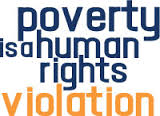Posted on January 22, 2015

When FLAC began co-ordinating a report from organisations on the ground to present to the United Nations on the state of economic, social and cultural rights in Ireland, it became clear very quickly that housing would be a major issue. Consultations with those organisations confirmed that in fact, in Ireland today, people in every conceivable type of housing, as tenant or owner, are at risk of insecure housing or no housing at all. And too many people are homeless.
The evidence given by colleague organisations bore out what FLAC was already hearing from the people who phone our legal information line. Those who have recently contacted us have included the shocked spouse of a house owner who was not told by her spouse of serious arrears on the mortgage because her partner was trying to shield her while she dealt with her own illness and that of their child where the lender had no sympathy for the situation at all. They included the couple who had rented their home to tenants who would not pay and who now faced slow and expensive proceedings to implement a PRTB finding that they were entitled to the property back, as well as questions from the lender as to why the rent was not coming in. Troubled tenants question us about whether it is really legal to jack up rent by such a large sum and so quickly, leaving them without affordable accommodation. Our colleagues in other organisations told us of the frustration of those who were homeless in accessing accommodation and the particular difficulties of people who had any added vulnerability.
All of this is no longer news. The media has covered and continue to cover cases of homelessness and incipient homelessness. However, the purpose of this collated information was so that those working on the ground to protect people’s rights could inform an examination that will take place over the coming months of the Irish record on economic social and cultural rights by the United Nation’s Committee overseeing Ireland’s obligations to protect, promote and fulfil those rights. The right of everyone to an adequate standard of living including adequate, affordable and quality housing is one of those rights.
The last time that the Committee examined Ireland, in 2002, it recommended that Ireland address the incapacity of new households to access adequate and affordable housing, as well as the terrible situation of Travellers forced to live on roadsides without any facilities. That was in or about the start of the bubble which has led to much bigger problems since then. It was also a year that Ireland joined the Euro – and that Ireland drew in a soccer match with Germany. A long, long time ago – almost another century. Even to read the government report for this current examination tells us little. It was written some time ago and only brings the story to 2010, to a time that pre-dated Ireland’s acceptance of a bailout on terms that ultimately did terrible damage to the human rights of many people in the country. That report will be brought up to date before the full examination takes place.
An examination of Ireland’s performance by the UN in Geneva in Switzerland seems quite remote until we realise that it gives us one of the few available opportunities to have a thorough and wide ranging discussion about what is really meant by the solemn commitment which is legally binding on our government to protect, promote and fulfil rights to housing, health, education work, culture and more. These rights are barely scrutinised in our courts. There is no Human Rights Committee or other specific forum for discussion in the Oireachtas. There is no other mechanism at all whereby the State can be asked to account for how it has implemented these fundamental rights – a promise that remains valid and necessary even in a recession or perhaps particularly in a recession. So where are we to go to look at what we are doing to protect the right to work? How do we assess from the perspective of what is right what supports should be available to families? Where can we have a sober debate about matters from the health needs of older people to the deprivation in many areas of access to broadband? In fact we have to manufacture such an opportunity – and this is it.
The government’s report to the international community is also a report to us at home, telling us how they think they are doing in progressing human rights. The parallel report that FLAC launched on 19 November with its collaborators from the community and voluntary sector is not just our report to the UN body, it is also our assessment at home to our government about what we think is needed for a better country. Others will add their own parallel reports on specific rights and between them all, it is an opportunity to take a proper look at what needs to be done in Ireland in order to protect and promote some of the human rights that matter so deeply to people and that make our society a better one. It is a framework to identify what is proper and decent and dignified for us in Ireland. It would be good to have a better more regular discussion, but we must use the opportunity we have been given and hopefully all work constructively to achieve a society where, to paraphrase Minister Howlin on Budget Day last October, we don’t just focus on an economic recovery but also recognise the need for a social recovery.
Noeline Blackwell is Director General of FLAC (Free Legal Advice Centres) a legal rights organisation which promotes equal access to justice.